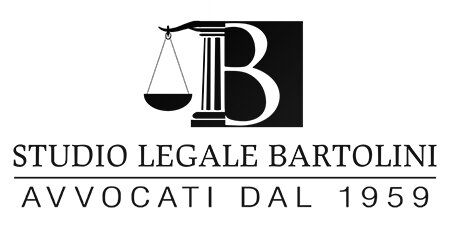Best Defamation Lawyers in Ancona
Share your needs with us, get contacted by law firms.
Free. Takes 2 min.
List of the best lawyers in Ancona, Italy
About Defamation Law in Ancona, Italy
Defamation in Italy falls under the category of unlawful acts that harm an individual's reputation without justification. It is governed by the Italian Penal Code, with articles specifically targeting offenses against personal honor and reputation. In Ancona, as a province within Italy, defamation laws are applied as per the national legislation, which includes civil and criminal liability. Defamation can be spoken (slander) or written (libel), with criminal proceedings available in cases of public insult or spreading false information that damages a person’s reputation.
Why You May Need a Lawyer
There are several common situations where you may require legal assistance in matters of defamation. These include instances where false information about you or your business is published online, in newspapers, or via other public channels. A lawyer can help if there's been an accusation of slander during public speeches or in interpersonal communications that has affected your standing in your community or profession. Furthermore, legal expertise is necessary to navigate the complexities of filing a claim, understanding defenses such as truth or opinion, and seeking damages or retractions.
Local Laws Overview
The key aspect of local laws on defamation in Ancona includes an understanding of the difference between criminal and civil defamation claims. The penal code stipulates that defamation results in criminal penalties, which can include fines or imprisonment, especially for defamation through the mass media. Civil law provides for compensatory damages for the victim. Additionally, the burden of proof often rests on the defendant, who must prove the truth of their statements or that the comments constituted a permissible opinion under the law.
Frequently Asked Questions
What constitutes defamation under Italian law?
Defamation occurs when false statements are made that injure the reputation of an individual or entity. These can be communicated through spoken words, written statements, gestures, or other forms of media.
What is the difference between libel and slander?
Libel refers to defamation in written or published form, while slander pertains to spoken defamatory statements.
Can a true statement be considered defamatory?
No, truth is typically a defense to a defamation claim, but the statement must not be misleading and conveyed in a manner that unfairly injures reputation.
What are the penalties for defamation in Ancona?
Criminal penalties can include fines and imprisonment. Civil penalties generally involve monetary compensation for damages sustained by the victim.
How can I defend myself against a defamation claim?
Common defenses include proving the truth of the statements or demonstrating that the statements were opinion-based or otherwise protected under free speech laws.
Is there a statute of limitations for filing a defamation case?
Yes, the statute of limitations for defamation claims in Italy is typically up to six years from the date of the offense.
Can businesses also file for defamation?
Yes, businesses, like individuals, can seek legal recourse if false statements are made that harm their reputation.
What should I do if I'm accused of defamation?
It's crucial to seek legal advice immediately. An attorney can help evaluate the claims and advise on the best defense strategies.
Are public figures treated differently under defamation law?
Yes, public figures may have a tougher time proving defamation as they usually need to show that false statements were made with actual malice.
What role does intent play in defamation cases?
Intent plays a significant role, and liability often requires either a knowing or negligent publication of false information.
Additional Resources
Individuals seeking further information or assistance with defamation issues in Ancona can contact the Ordine degli Avvocati di Ancona (Bar Association of Ancona) for legal referrals or guidance. The Italian Ministry of Justice also provides resources and legislative texts concerning defamation law.
Next Steps
If you believe you are involved in a defamation case, either as a victim or accused, it is essential to consult with a knowledgeable lawyer who specializes in defamation. Begin by documenting any evidence, such as written statements or recordings, and contact a legal professional to assess your case. Taking timely action will be crucial in protecting your rights and navigating the legal processes effectively.
Lawzana helps you find the best lawyers and law firms in Ancona through a curated and pre-screened list of qualified legal professionals. Our platform offers rankings and detailed profiles of attorneys and law firms, allowing you to compare based on practice areas, including Defamation, experience, and client feedback.
Each profile includes a description of the firm's areas of practice, client reviews, team members and partners, year of establishment, spoken languages, office locations, contact information, social media presence, and any published articles or resources. Most firms on our platform speak English and are experienced in both local and international legal matters.
Get a quote from top-rated law firms in Ancona, Italy — quickly, securely, and without unnecessary hassle.
Disclaimer:
The information provided on this page is for general informational purposes only and does not constitute legal advice. While we strive to ensure the accuracy and relevance of the content, legal information may change over time, and interpretations of the law can vary. You should always consult with a qualified legal professional for advice specific to your situation.
We disclaim all liability for actions taken or not taken based on the content of this page. If you believe any information is incorrect or outdated, please contact us, and we will review and update it where appropriate.









